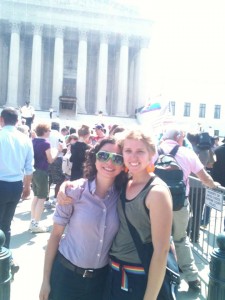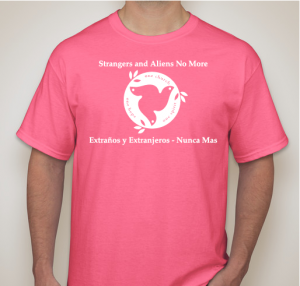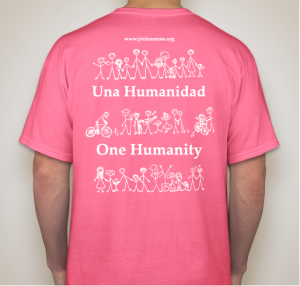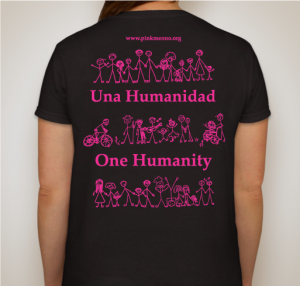The keynote speakers were amazing: Justin Lee is the founder of The Gay Christian Network and shared his story and ways to best talk to people who disagree with our perspective about LGBT issues. Jennifer Knapp is an AMAZING musician who sang and talked about her experience with the Christian music industry and then being kicked out when she “came out”. Pádraig Ó Tuama is a poet, theologian, and peace worker from Ireland who works the Irish Peace Center’s project that led to “LGBT experiences of faith and church I’m Northern Ireland. I talked to him for a bit afterwards and found out that he knows my cousin, Jenna Liechty and her husband Peter because they lived in Ireland for the past few years and worked along with him. Amy DeLong is an ordained Elder in the United Methodist Church who led our worship service and gave a great sermon about being progressive in our outreach towards LGBT persons and our restorative justice to those who disagree.
There were so many workshops to choose from, but two of them I enjoyed were a panel of the Boltz family when their Christian musician father came out and their amazing journey of full acceptance, and then a workshop called LGBTs and the bible. Heather Rittenhouse spoke of the scripture verses and translations that are often used to condemn homosexuality as well as those that are used to SUPPORT the full acceptance of LGBT persons and their relationships. Read more ›





